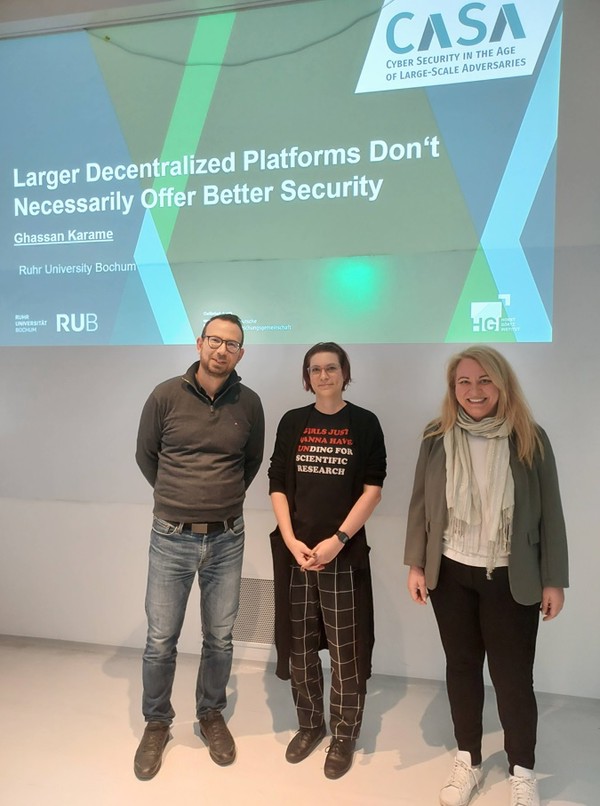Larger Decentralized Platforms Don't Necessarily Offer Better Security
Talk by Ghassan Karame
Abstract: Decentralized platforms support transparency and enable open access and participation. It is expected that decentralization will stimulate innovation and will positively impact the digital experience of many enterprises around the globe, e.g., in applications for payments, machine learning, social networks, etc.
Unfortunately, the precise relationship between “decentralization” and platform security remains unclear. It is commonly believed that greater decentralization improves security by distributing power across more nodes. Yet, in some applications, an increasing number of nodes also leads to higher network delays, and the extent to which these delays impact security is not well understood. In this talk, I will explore how decentralization influences the security of two prominent emerging decentralized applications: Nakamoto-style blockchains and Decentralized Machine Learning.
Bio: Since November 2021, Ghassan Karame is a full Professor of Computer Science at the Ruhr-University Bochum (RUB) - leading the Chair for Information Security. Ghassan is a Principal Investigator (PI) in the Cluster of Excellence CASA (Cyber Security in the Age of Large-Scale Adversaries) and, since October 2023, the Director (and a PI) at the Horst Goertz Institute for IT Security (HGI). He is also involved as a (part-time) Chief Scientific Advisor at NEC Laboratories Europe. Before joining RUB, he was working as an NEC Fellow and was leading the Security research group at NEC Labs in Germany. Prior to joining NEC Labs, he was working as a postdoctoral researcher in the Institute of Information Security of ETH Zurich, Switzerland. Since 2011, he holds a PhD degree in Computer Science from ETH Zurich. Ghassan is interested in all aspects of security and privacy with a focus on decentralized security, and platform security.

